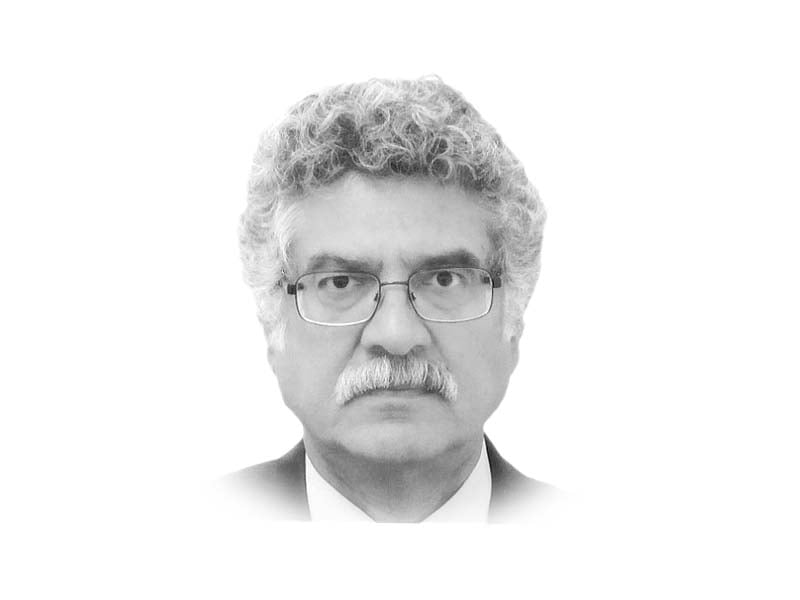
The recent uprising in Bangladesh signifies not only rejection of the repressive regime of Prime Minister Sheikh Hasina but also the influence of her Indian mentors. Opposition to Indian interference in the internal and external affairs of neighbouring countries has also recently led to the expulsion of Indian "advisers" from the Maldives and Nepal's forceful assertion of its claim to the disputed Kala Pani area. These are all instances of the simmering resentment against Indian hegemony boiling over and underscore the limits of Indian power.
India has territorial disputes with all its neighbours and is seen as the preeminent threat to their security owing to its hegemonic policies since independence. From 1947 India has rejected any solution to the Kashmir dispute based on UN resolutions or bilateral agreement. The territorial dispute with China has similarly remained unresolved since the 1950s with Indian pursuit of its "Forward Policy" and rejection of Chinese compromise solutions, eventually leading to its disastrous defeat in the 1962 war. It employed interference and aggression to break up Pakistan in 1971. The Indian nuclear test of 1974 was another demonstration of regional power ambitions. In 1975, India occupied Sikkim while converting Bhutan into its protectorate. Nepal has been continuously dominated through interference, territorial claims and embargoes. In Sri Lanka, LTTE separatists, trained and armed by India, unleashed a civil war from 1983 to 2008, during which the Indian Peace Keeping Force was also deployed. In 1988, India stage-managed a coup in the Maldives so as demonstrate its regional power by sending troops to install the elected government. Even in Bangladesh, Indian domination became so unacceptable that a military coup assassinated the Indian supported founding leader, Sheikh Mujeeb, in 1975.
Despite such reversals, India has persisted with its hegemonic designs, especially towards Bangladesh. Following Mujib's assassination, his daughter, Sheikh Hasina, was recruited by Indian intelligence, RAW, and with its patronage became Prime Minister in 1996. Despite subsequent electoral defeats, Sheikh Hasina returned to power in 2009 which she retained for 15 years through rigged elections and massive backing of the Modi government. The Bangladesh armed forces were effectively neutralised and RAW "held complete sway over Bangladesh's internal and external politics". With direct access to Prime Minister Hasina, RAW encouraged and enabled her to unleash a reign of terror, with intimidation, execution, incarceration or simply disappearances of political opponents; coupled with favouritism and cronyism for loot and plunder of the country. While the economy did grow, the gains were unevenly distributed, the wealthiest 10 per cent controlling 41 per cent of national income while the bottom 10 per cent receiving only 1.3 per cent. This was aggravated by a quota system, favouring families of "freedom fighters" over "Razakars". Several Indians were even inducted into government services, effectively controlling the State, including the police and intelligence agencies.
One of the key external outcomes of Indian ingress was Sheikh Hasina's unilateral hostility towards Pakistan, even outdoing the Indians in her eagerness to please her masters. Pakistan was demonised for genocide and terrorism, diplomatic relations downgraded and Pakistanis denied visas among other restrictions. She even walked out of a cricket match that Pakistan was winning against India.
The uprising against Sheikh Hasina has clearly been driven by her repressive rule. But it has also been motivated by her willfully craven acceptance of Indian interference. This explains the level of hatred that has been unleashed on her personally, her father, her party, and the memorials of the 1971 war. Apart from her own unceremonious departure, thousands of Indians officials have fled along with their collaborators. The obvious reality is that people of Bangladesh are not willing to allow their hard-won freedom and sovereignty to be usurped by India.
These developments demonstrate that there are now obvious limits to Indian power and India's pursuit of its maximalist hegemonic ambitions can no longer be tolerated. As some of the most prominent persons from Bangladesh, Nepal and Sri Lanka have, in The Wire of 9 August, written: "We come together in the context of the momentous changes in Bangladesh to demand that the Government of India desist from interfering in our respective politics" and "New Delhi can contribute to stable politics and long-lasting peace in South Asia by abandoning its overt and covert interference in the internal affairs of its neighbours."
But it is unlikely that the Indians will draw the right lessons from these developments. This is clear from the expeditious exodus of Sheikh Hasina arranged by RAW to India where she was immediately de-briefed by National Security Adviser Ajit Doval in the Indian capital. Clearly, efforts are already underway to revive and regroup Indian assets in Bangladesh to restore Indian influence.
Indian machinations are also encouraged by the increasing global confrontation between the US and China which has propelled India to become America's "Net Security Provider". This role encourages Indian regional hegemony, which is already demonstrated by its increased belligerence towards neighbours.
However, the emergence of China as a global power is proving to be beneficial to South Asian countries to withstand pressure from India. The future trend would, therefore, be for these countries to increasingly rely on China to protect their interests. The US must also recognise, following the events in Bangladesh, that there are limits to Indian power and that endorsing Indian hegemony can prove to be counterproductive for American interests in this region.
While it is too early to judge the impact of the developments in Bangladesh on relations with Pakistan, it would be safe to assume that the new government in Dhaka would not be hostile towards Pakistan. For its part, Pakistan should seek mutually beneficial relations with Bangladesh while respecting its sovereignty and independence. The two countries should, therefore, focus on building upon the positive aspects while undertaking to resolve their differences. It is not in the interests of either country that India is enabled to manipulate relations between them.




1731454275-0/Martha-(2)1731454275-0-165x106.webp)
1731451969-0/Trump-(4)1731451969-0-165x106.webp)



1729685382-0/Untitled-design-(57)1729685382-0-270x192.webp)




COMMENTS
Comments are moderated and generally will be posted if they are on-topic and not abusive.
For more information, please see our Comments FAQ